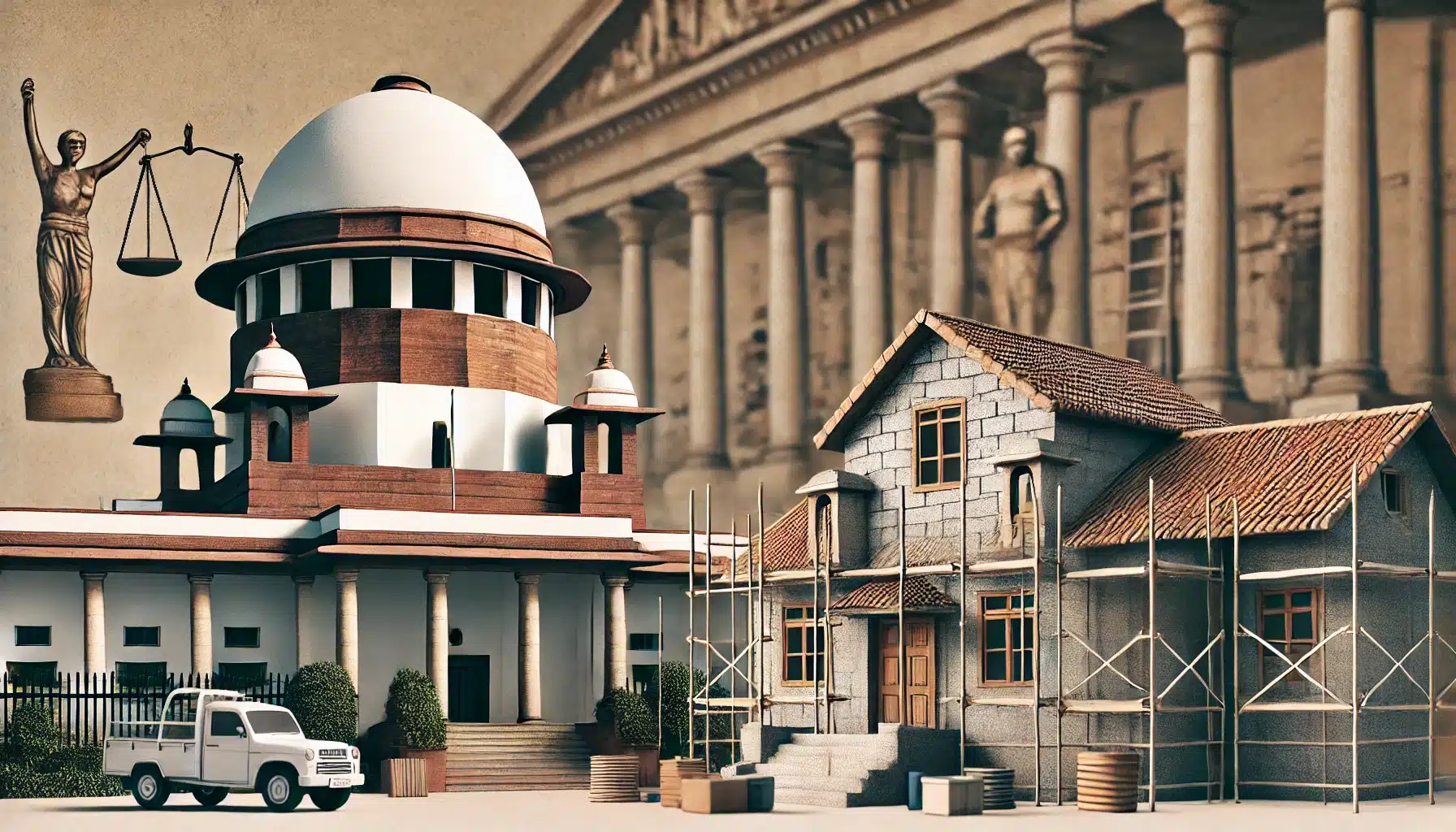The Supreme Court of India has firmly reiterated that demolishing a legally constructed property based on alleged involvement in a crime is unconstitutional. In a recent case, the Court issued a notice to halt the demolition of a petitioner’s home, underscoring that such actions undermine the rule o

In a crucial hearing regarding the potential demolition of a residential property based on the alleged involvement of a family member in a crime, the Supreme Court reiterated that such actions are unlawful unless due legal process is followed. The Court emphasized that a person’s alleged involvement in a crime cannot justify the demolition of a legally constructed property, and such practices contradict the rule of law governing the nation.
Court’s Observations:
- The Court firmly stated, “In a country where actions of the State are governed by the rule of law, the transgression by a family member cannot invite action against other members of the family or their legally constructed residence. Alleged involvement in crime is no ground for demolition of a property.”
- Furthermore, the Court noted that “the alleged crime has to be proved through due legal process in a Court of law. The Court cannot be oblivious to such demolition threats inconceivable in a nation where law is supreme. Otherwise, such actions may be seen as running a bulldozer over the laws of the land.”
Case Background:
Writ Petition (Civil) Diary No. 41707/2024
Case Title: Javedali Mahebubmiya Saiyed v. State of Gujarat & Anr.
- A bench comprising Justice Hrishikesh Roy, Justice Sudhanshu Dhulia, and Justice SVN Bhatti heard the case and issued a notice, returnable in four weeks, concerning the petitioner’s plea against the possible demolition of his family residence by municipal authorities.
- The Court directed that status quo regarding the petitioner’s property be maintained until further orders.
Timeline of Events:
- September 1, 2024: An FIR was registered against a family member of the petitioner.
- Following the FIR, the municipal authorities allegedly threatened to demolish the family’s residence. This led the petitioner to approach the Supreme Court.
Arguments Presented by Petitioner’s Counsel:
- Senior Counsel Iqbal Syed, representing the petitioner, referred to a Supreme Court order that outlined the need for a uniform national approach against unlawful demolition threats. He stated that similar issues would be addressed with pan-India action.
- Syed also referred to the revenue records, indicating that the petitioner is a co-owner of the property located in Village Kathlal, Kheda District.
- He highlighted a resolution from the Kathlal Gram Panchayat dated August 21, 2004, which granted permission for the construction of the petitioner’s residential property. The family has been residing in this property for over two decades.
- Furthermore, on September 6, 2024, the petitioner filed a complaint under Section 333 of the Bharatiya Nyaya Sanhita, 2023, requesting that the Deputy Superintendent of Police, Nadiad, Kheda District ensure the law takes its course against the accused, without causing harm to the family’s legally constructed property.
Court’s Emphasis on Legal Process:
- The Court underscored that any criminal allegations must be proven through the legal process and that demolition based on mere allegations undermines the rule of law.
- “The law must follow its due process, and threats of demolition cannot be sustained in a legal framework governed by justice,” the Court stressed.
Related Developments:
- Another bench of the Supreme Court, comprising Justice BR Gavai and Justice KV Viswanathan, expressed concerns on September 2, 2024, regarding the trend of demolishing properties based on criminal allegations. The bench indicated that the Supreme Court is considering framing pan-India guidelines to address the increasing instances of “bulldozer actions” undertaken by authorities as a punitive measure against alleged offenders.
Click to read: Javedali Mahebubmiya Saiyed v. State of Gujarat & Anr. Writ Petition (Civil) Diary No. 41707/2024





